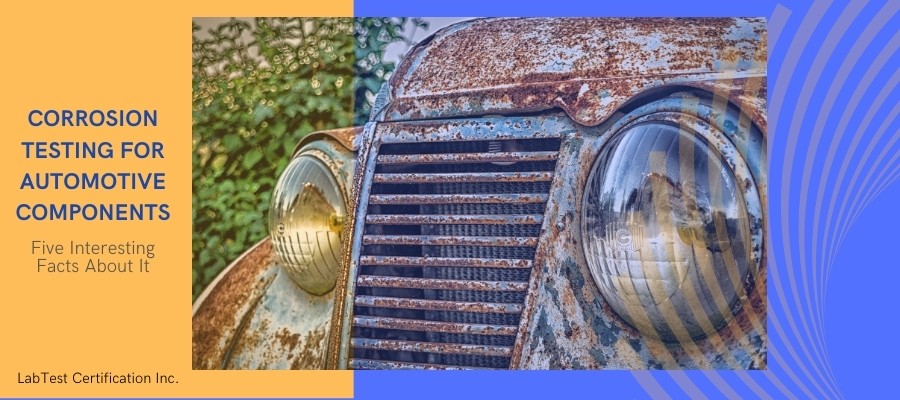Be it classical automobiles or recent autonomous vehicles, manufactures must mandatorily perform series of tests which will help the vehicles comply with the relevant standards and behave as per the predetermined criterion.

Out of various tests, Corrosion testing helps to determine the capability of materials to resist the effects of corrosion caused by temperature, humidity, and salt and water, due to weather and road conditions.
Typically, for Automotive applications, there are mainly two categories of standards: one for Accelerated corrosion and one for Cyclic corrosion.
Five Interesting Facts About Corrosion Tests
- Accelerated Corrosion test mainly evaluates products like metals, coated materials, plastics, and woods to corrosive conditions. The test methods involve exposing the specimens to continuous salt spray for a pre-determined period. Some standards for accelerated tests are ISO 16151 and ASTM B117.
- Accelerated Corrosion test subjects the specimen to longer periods and does not accurately reproduce the conditions that automotive components are subject to, in the real-world. For example: accelerated tests simulate either continuous wet or dry conditions, whereas in the real-world, automotive parts might be only subjected to these conditions for a period of time. Also Salt Spray tests have a high salt concentration than real-world situations and automotive parts, in real-world, can be subjected to salts other than just NaCl.
- Cycling Corrosion test mainly focusses on accelerating the real-world corrosion failures. These tests evaluate products like metals, coated materials, plastics, and woods for the different environments that can be found in nature. The standard for Cycling Corrosion test is SAE J2334.
- In Cycling Corrosion test, the correlation co-efficient between lab test results and real-world condition results is better than in Accelerated Corrosion test.
- Cyclic Corrosion test, like in SAE J2334, simulates real situations like continuous cycling of humid, salt, and dry stage. To produce this standard, SAE ran a series of tests in the most corrosive environments of North America for 5 years and then, measured the performance of materials. The results were then statistically analyzed, which offered the best correlation to real-world results.
LabTest Certification Inc. is an accredited certification body, testing laboratory and inspection agency that can provide global product certification to help manufacturers meet expected market regulations.
You can get in touch with us for fast turnaround and cost-effective solutions.




